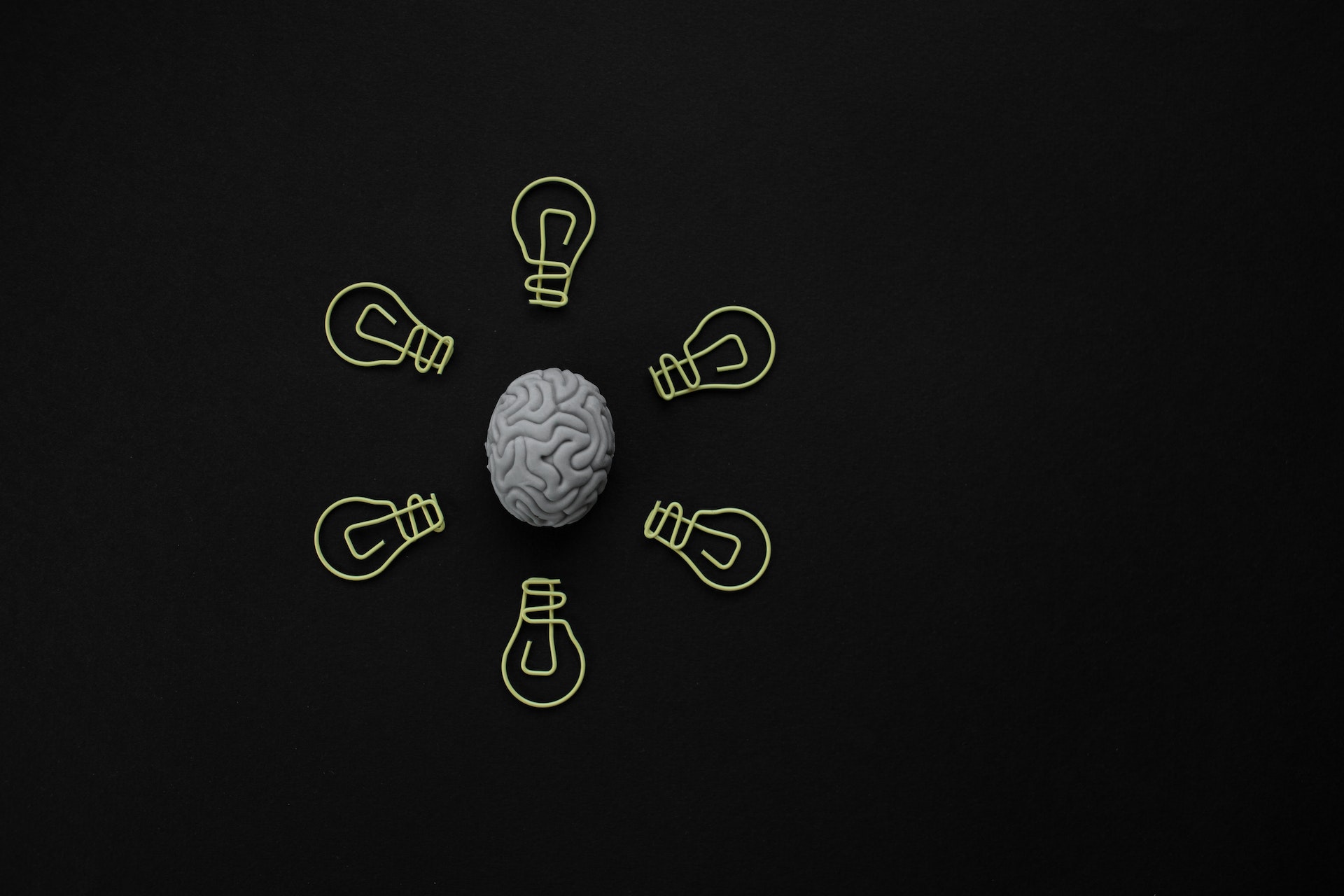Impressive CBG Effects On Brain Health
Cannabigerol, or CBG, is one of the many cannabinoids found in the cannabis plant, and has gained attention for its potential CBG effects on brain function.
Author:Black Crystal Reviewer:Scarlet SunsetOct 23, 202312.4K Shares192K Views

Cannabigerol, or CBG, is one of the many cannabinoids found in the cannabis plant, and has gained attention for its potential CBG effects on brainfunction.
While much research has focused on its more well-known counterpart, CBD (cannabidiol), CBG's distinct properties and interactions with the brain are a subject of growing interest.
In this exploration, we delve into the emerging understanding of CBG's effects on the brain, shedding light on its mechanisms, potential benefits, and the ongoing research that seeks to unlock its full potential.
How CBG Works
In humans, CBG is metabolized by the endocannabinoid system. The endocannabinoid system, a network of chemicals and receptors, regulates the internal environment to keep us functioning at our best.
CBG mimics endocannabinoids, the molecules that our bodies naturally produce. However, it lacks the intoxicating properties of THC and so cannot be used recreationally.
There are two kinds of cannabinoid receptors in the human body, called CB1 and CB2. Unlike CB2 receptors, which are present throughout the body, CB1 receptors are mostly localized in the central nervous system and brain.
It is believed that CBG enhances the action of anandamide by binding to both receptors. There are several neurotransmitters in the brain; anandamide is only one of them. Positive effects on pleasure, motivation, hunger, sleep, and pain perception are all attributable to it.
What Is CBG Effects?
Cannabigerol, or CBG, is a non-psychoactive cannabinoid found in the cannabis plant. It's important to note that the effects of CBGcan vary based on factors such as dosage, individual response, and the specific condition being addressed.
Further research is needed to fully understand the range of CBG's effects and its potential applications in various medical contexts. Always consult with a healthcare professional before using CBG or other cannabinoids for medical purposes.
While research on CBG is still in its early stages, it is believed to have several potential effects, including:
- Anti-Inflammatory:CBG has shown promise as an anti-inflammatory agent. It may help reduce inflammation in various parts of the body, potentially benefiting conditions associated with inflammation, such as arthritis.
- Pain Relief:CBG, like other cannabinoids, may have pain-relieving properties. It can potentially modulate pain perception and provide relief from chronic pain conditions.
- Neuroprotection:Some studies suggest that CBG may have neuroprotective properties, which means it could protect brain cells from damage and degeneration. This could be relevant in the context of neurodegenerative diseases.
- Antibacterial:CBG has demonstrated antibacterial properties and may be effective against antibiotic-resistant bacteria. It could be a valuable compound for fighting bacterial infections.
- Appetite Stimulation:CBG may stimulate appetite, which could be beneficial for individuals experiencing appetite loss due to medical conditions or treatments like chemotherapy.
- Glaucoma Management:CBG has been investigated for its potential in managing intraocular pressure, making it a topic of interest for glaucoma treatment.
- Mood Regulation:While more research is needed, CBG may influence mood and anxiety. It could have potential applications in managing mood disorders.
- Gastrointestinal Benefits:CBG may help regulate digestive processes and provide relief from gastrointestinal issues such as irritable bowel syndrome (IBS).
- Skin Health:CBG has been explored for its potential benefits in skincare products, including anti-inflammatory and antioxidant effects that could be useful for managing skin conditions.
- Cancer Research:Early studies suggest that CBG may inhibit the growth of cancer cells, making it an area of interest in cancer research.
Is CBG Dangerous?
Cannabigerol (CBG) is not inherently dangerous, and it is considered safe for many individuals when used responsibly. CBG, like other cannabinoids, interacts with the endocannabinoid system (ECS) in the body, which plays a crucial role in maintaining balance and homeostasis. However, there are some important considerations to keep in mind.
First and foremost, CBG is non-psychoactive, meaning it does not produce the intoxicating effects associated with tetrahydrocannabinol (THC), the primary psychoactive compound in cannabis. This non-psychoactive nature makes CBG a potentially safer option for those seeking the potential benefits of cannabinoids without the risk of feeling "high."
One notable factor contributing to the safety of CBG is its low affinity for the CB1 and CB2 receptors in the brain and central nervous system. This reduced affinity means that CBG is less likely to interfere with cognitive function and motor skills, further contributing to its safety profile.
However, it's important to acknowledge that the cannabis and hemp industry, including CBG products, is not extensively regulated by the U.S. Food and Drug Administration (FDA). This lack of regulation has led to variations in product quality and labeling accuracy.
Consequently, individuals considering CBG should exercise caution and choose products from reputable manufacturers that provide third-party lab testing results to verify cannabinoid content and ensure the absence of contaminants.
Moreover, CBG may interact with certain medications, particularly those metabolized by the same liver enzymes. It is essential to consult with a healthcare professional, especially if you are taking medications, to assess potential drug interactions and ensure your safety.
CBG Effects On The Brain
- The use of CBG to lessen neuroinflammation has shown encouraging outcomes. Many disorders, including Parkinson's and Huntington's, have been linked to neuroinflammation. Controlling oxidative stress, a factor in many neurodegenerative illnesses is another area where CBG becomes useful.
- Additionally, CBG improves one's state of mind. There are two kinds of neuroreceptors that it may stimulate, both of which are crucial to maintaining psychological health and happiness. The parasympathetic nervous system is influenced by CBG when it binds with alpha-2 receptors, and this has been linked to a reduction in blood pressure and anxiety.
- CBG also modulates serotonin and cognitive function by interacting with certain receptors in the neural system.
- Depression and anxiety sufferers benefit from CBG treatment as well. Clinical depression and anxiety may benefit from CBG's capacity to modulate receptor activation. The same holds true for enhancing cognition and retention. Because of this, many people who use CBG products report feeling better after therapy.
- Patients with depression and anxiety may also benefit from CBG's ability to boost mood. Evidence suggests that CBG may increase levels of the feel-good chemical anandamide. This endocannabinoid, often known as the "Bliss Molecule," elevates mood and stimulates the brain's reward system when it is released. There are no psychotropic effects, yet the user reports feeling inspired and energized.
Potential Benefits Of CBG
CBG has shown therapeutic promise in animal studies. While additional study is required to fully understand the effects and advantages of this cannabinoid, the following are some preliminary results.
Anxiety And Depression
Among those who used CBG-rich cannabis products, the majority did so to alleviate anxiety, and one-third did so to combat depression, according to small-scale research. Most reviewers agreed that CBG was superior to standard treatments for these issues.
Chronic Pain
According to the aforementioned research, chronic pain was the second most popular indication for CBG usage, with 73.9% of users reporting superior efficacy compared to conventional treatments.
Pain that persists for three months or longer is considered chronic. Around 51.6 million Americans, or around one in five, suffer from this sort of illness.
Inflammatory Bowel Disease (IBD)
One study found that between 15 and 40 percent of patients with inflammatory bowel disease (IBD) utilize cannabis and cannabinoids to treat their symptoms, including loss of appetite and discomfort.
Researchers noted that although preliminary data suggests it may help in IBD, there is a lack of high-quality evidence and recommendations for optimal dosing and administration.
Glaucoma
Intraocular pressure (IOP) refers to the pressure within the eye, and those with high IOP are more likely to develop glaucoma. Cannabinoids have been the subject of several investigations on their effect on IOP.
These cannabis derivatives have been studied for their potential to cure glaucoma because of their ability to reduce intraocular pressure (IOP) in both people and animals.
Huntington's Disease
Damage to brain nerve cells is a hallmark of Huntington's disease. Cannabigerol has a protective effect on cells (N2a cells) against the excitotoxic effects of excitatory neurotransmitters, which may cause cell death if they are stimulated for too long.
Cancer
According to a meta-analysis published in 2021, CBG seems to inhibit the growth of breast cancer cells and may help eliminate inflammatory cells linked to this malignancy.
Bacterial Infections
CBG exhibits antibacterial capabilities, notably against methicillin-resistant strains of Staphylococcus aureus, according to research scheduled to be published in 2020 on the antimicrobial potential of cannabis.
Staphylococcus aureus, or MRSA, is a strain of the bacterium Staphylococcus that is resistant to several antibiotics.
Neuroprotective Effects Of CBG
Evidence suggests that CBG may be useful in combating neuroinflammatory and oxidative stress-inducing illnesses. When free radical generation exceeds the body's antioxidant defenses, oxidative stress develops.
Alzheimer's disease, parkinsonism, and other mental illnesses all have inflammation and oxidative stress to thank for their development.
By bypassing the body's inherent defenses, CBG is able to decrease the number of free radicals. It protects neurons from damage caused by inflammation.
Neuroprotective properties of CBG were discovered to be useful in the fightagainst Huntington's disease. The findings support the use of CBG in HD, where neuronal inflammation is a key problem.
CBD and CBG were discovered to have synergistic neuroprotective effects in another investigation. CBG prevents neuronal cell death and stress, whereas CBD improves neuron health.
When CBD and CBG were tested on rat cells, researchers saw a dramatic decrease in the quantity of charged and unstable species (reactive oxygen species, or ROS), which are a direct outcome of the body's response to stress. Even at lower dosages, CBG was far more effective than CBD.
Anti-inflammatory Effects Of CBG
The use of CBG to treat inflammatory bowel disease (IBD) has been supported by research conducted in experimental settings.
Diseases like Crohn's and ulcerative colitis fall under the umbrella term inflammatory bowel disease (IBD), which is defined as persistent, ongoing inflammation of the digestive system.
Millions of individuals throughout the globe are afflicted with IBD, making it a very real problem. It cannot be treated.
The therapeutic benefits of CBG in IBD have been demonstrated in mouse research using an experimental model of the disease. In order to examine inflammation and associated indicators in the blood, scientists intentionally produced colitis in mice.
The mice were subsequently given CBG to treat their condition. The data showed that CBG successfully reduced colon inflammation. It accomplished this through two channels:
- Colon swelling (caused by nitric oxide) generation was reduced.
- Decreased levels of reactive oxygen species (ROS) produced by colon cells.
Your body has both CB1 and CB2 receptors in its immune system. The immune system is where cannabinoids make their impact felt. Anti-inflammatory benefits against certain inflammatory and autoimmune illnesses have been the primary focus of cannabis research.
CBD and CBG both work by reducing pain and inflammation. Both cannabinoids have the advantage of not being habit-forming or addictive. That new medicine development is possible is a positive sign.
Before we wrap off this part and go on to the next, there's one more fascinating tidbit to share: CBG may have a role in obesity. One research in mice found that CBG compounds not only reduced inflammation and pain but also protected against obesity.
CBG Effects On Brain - FAQs
What Are The Primary Mechanisms Through Which CBG Affects The Brain?
CBG primarily affects the brain through its interaction with the endocannabinoid system (ECS), which plays a central role in regulating various physiological processes.
Can CBG Be Used To Manage Neuroinflammatory Conditions?
Some research suggests that CBG's anti-inflammatory properties may have potential in managing neuroinflammatory conditions, but further studies are needed for a comprehensive understanding.
Are There Any Cognitive Side Effects Associated With CBG Use?
CBG is generally considered non-psychoactive, but it's essential to explore potential cognitive effects and consult with healthcare professionals for personalized guidance.
How Does CBG Compare To Other Cannabinoids Like CBD In Its Brain-related Effects?
CBG differs from other cannabinoids like CBD in its mechanisms of action and potential effects on the brain, making it a unique subject of study in the field of cannabinoid research.
What Ongoing Research Is Focused On CBG's Impact On Brain Health?
Numerous ongoing studies are examining CBG's effects on brain health, including its potential in neuroprotection, neuroinflammation management, and mood regulation, offering promising avenues for future discoveries.
Final Thoughts
There are several chemicals in the cannabis plant that may have medicinal benefits. CBG is a less well-known cannabinoid, CBG's effects on the brain have enormous therapeutic value.
More study is needed, although it seems to be useful against many disorders that produce inflammation and damage to neurons.
Therefore, before taking CBG for any physiological or psychological illnesses, it is essential to see a medical practitioner.

Black Crystal
Author
Black Crystal is a captivating writer who finds inspiration in the quiet corners of the street and the mysterious depths beneath bridges. With a penchant for the night, she crafts enchanting tales that explore the uncharted realms of the human experience. Embracing the darkness as her muse, Black Crystal's evocative prose and haunting imagery transport readers into a world where secrets whisper and dreams take shape.
Her writing defies categorization, inviting readers to uncover the magic hidden within the shadows and embrace the enigmatic beauty of her nocturnal narratives. Step into her realm, where the written word dances with ethereal grace, and immerse yourself in the captivating stories she weaves.

Scarlet Sunset
Reviewer
Scarlet Sunset is a captivating and confident transgender individual who radiates sensuality and embraces her unique beauty. With a radiant smile and a touch of red lipstick, she captivates hearts by the poolside as the sun dips below the horizon, casting a warm glow on her unforgettable presence.
Despite societal norms and expectations, Scarlet celebrates her body, proudly defying conventional standards of beauty. Her curves tell a story of self-acceptance and empowerment, challenging stereotypes and inspiring others to embrace their own bodies without reservation.
Latest Articles
Popular Articles
